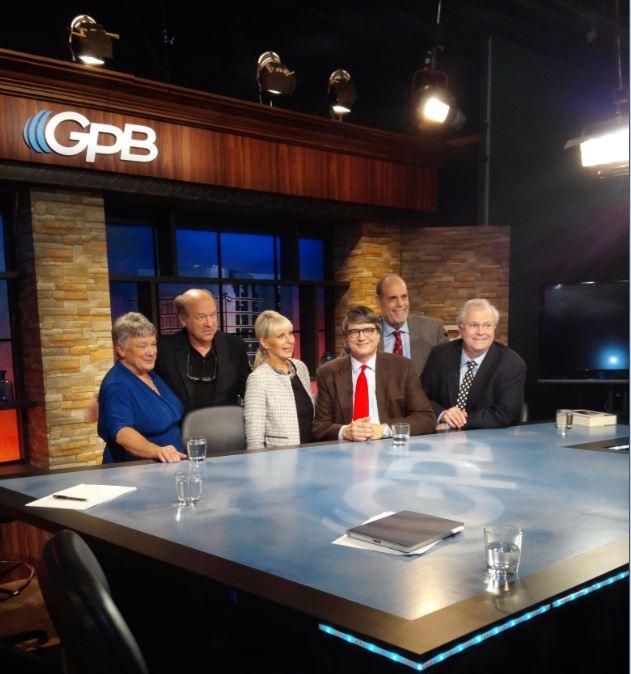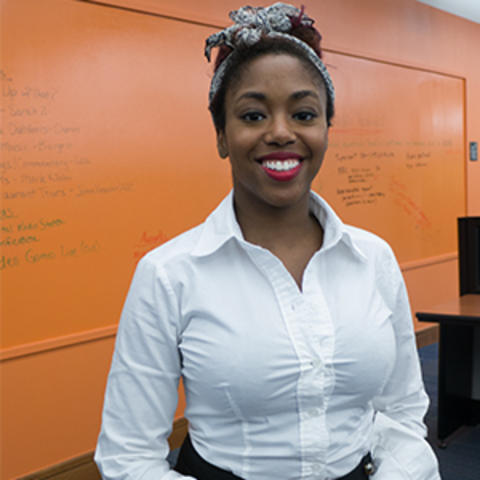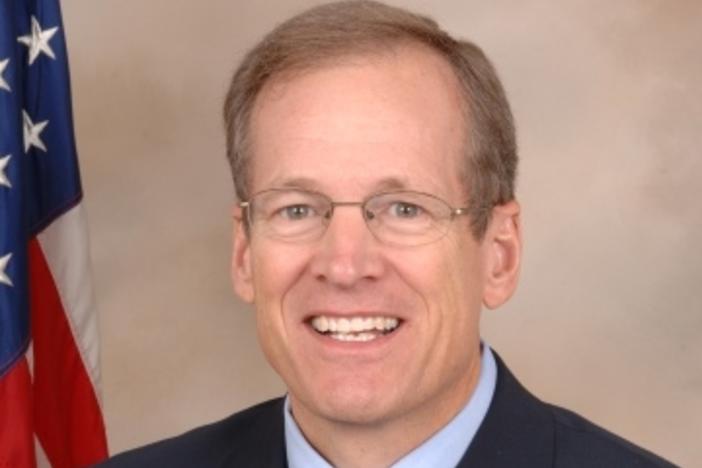
Section Branding
Header Content
On The Story Special Edition – Dean Rusk
Primary Content

In an unprecedented television event, GPB assembled a panel to help reevaluate the legacy of a man who began as a barefoot boy in Cherokee County, Georgia and went on to serve in the highest halls of power. A special Edition of “On the Story” with Bill Nigut and Bobbie Battista focusing on Dean Rusk will premiere on May 27th, at 8:30 p.m., immediately following the GPB documentary “Dean Rusk, at the Heartbeat of History.”
Few civil servants have been so publicly vilified as the man whose resume reads like a checklist of the 20th century. But, along with helping to desegregate the U.S. Army, avoid nuclear annihilation during the Cuban Missile Crisis, and serving two presidents, Dean Rusk became the point man on policy for what many say was America’s most disastrous foray into foreign policy: the war in Vietnam.
This edition of “On the Story” followed a GPB original documentary, “Dean Rusk, at the Heartbeat of History,” which painstakingly recounts Dean’s storied career. Then, Bill and Bobbie sat down with four people who knew Rusk well. Journalism legend Tom Johnson led CNN and the L.A. Times. Back in the LBJ White House, Johnson was a quiet man in dark glasses who dutifully jotted down copious notes during the president’s Tuesday lunch meetings. Another man, Don Johnson considers Rusk a major influence on his life. He went from protesting the Vietnam War to heading up the UGA Institute named for one of the war’s chief architects. Peggy Rusk Smith made the cover of Time magazine by marrying a black man. Her father immediately offered LBJ his resignation – which he immediately refused. Rich Rusk suffered personal anguish over the war and left home, traveling to Alaska for 14 years. In 1984, he finally reconciled with his father and co-authored the memoir, “As I Saw It.”
At one point during the interview, Peggy Rusk Smith shared her memories of the 1962 Cuban Missile Crisis. A car sat outside the family home, ready to whisk the family to a safe location, if the worst were to happen. She says she awakened one morning to find her father disheveled in bed, reassuring the family that at least they were still there. Tom Johnson added that what few knew at the time was how hard Rusk had to work to convince JFK to avoid using the nuclear option. After 13 nerve-racking days, the Soviets dismantled their missiles and edged the world back from the brink.
Years later, Peggy Rusk Smith found herself at the center of a different storm. She had decided to marry her dashing soldier boyfriend, Guy Smith. Smith happened to be, as newspaper headlines of the time described him, “negro.” Peggy says of her parents that she was “surprised they were surprised,” because she and Guy had dated for years. The pair even agreed to see each other only once a week and to have Peggy home by eleven. Still, the interracial marriage of the daughter of America’s Secretary of State was the cue for Rusk to offer to quit. As Tom Johnson recalls, Rusk and LBJ met privately in a bedroom of the executive mansion to discuss the matter. But, Lyndon Baines Johnson, who “trusted and respected Georgians,” would not let go of Rusk.
During the 30-minute GPB special, Don Johnson contributed his views on Rusk’s handling of the war. He believes Rusk and LBJ felt an obligation to the South Vietnamese. Johnson, a one-time war protestor, developed a respect for Rusk which deepened when Rusk played an instrumental role in launching Johnson’s career. Johnson is now head of UGA’s Rusk Institute.
He and the other panelists shared details of the troubles Dean Rusk had landing a teaching position at the UGA Law School, following his tenure as Secretary of State. Certain factions in Georgia’s Board of Regents did not want Rusk because of his daughter’s marriage to Smith. In the end, however, Rusk’s supporters prevailed.
Rich Rusk and the others on the panel offered a view of his father as being misrepresented by history. He and Tom Johnson believe Rusk and LBJ felt the pain of every death in Vietnam. The younger Rusk says he hopes that newly declassified documents will lead to new history books, and a better understanding of his father’s role.
In an unprecedented te





